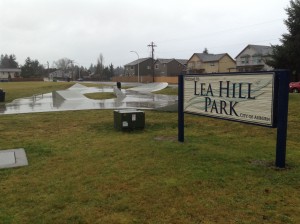For more information about using Prezi click here.
Unit Planning Framework
|
Stage 1 – Desired Results |
||
| Established Goals: |
- W. 9-10.7. Conduct short as well as more sustained research projects based on focused questions, demonstrating understanding of the subject under investigation.
- RL.9-10.1. Cite strong and thorough textual evidence to support analysis of what the text says explicitly as well as inferences drawn from the text.
- RL.9-10.4. Determine the meaning of words and phrases as they are used in the text, including figurative and connotative meanings; analyze the cumulative impact of specific word choices on meaning and tone (e.g., how the language evokes a sense of time and place; how it sets a formal or informal tone)
Understandings (including Propositions ++):
Students will understand that…
- All names have meanings be they personal, communal, or global.
- Names in literature can contribute to the overall tone of a piece of literature.
- Names can be a foreshadowing of events.
- Textual evidence is needed to construct an argument about a literary text.
Unit/Essential Questions:
- Do names have meanings?
- Why do we have first and last names?
- What does my name mean?
- How does literature use the names of characters or places to foreshadow events?
- How does literature use the names of characters and places to build a tone or setting?
Stage 1 – Desired Results (cont.) Learning Targets (Standards deconstructed below)
Stage 2 – Assessment Evidence
Knowledge
- Students will be able to read and comprehend: The Balcony Scene from Romeo &Juliet, (short story) by MarkTwain, …
- Students will be able to explain what a pen name or nom-de-plume is and why, historically, some authors have chosen to use one.
- Students will be able to explain foreshadowing.
Short comprehension quizzes (formative)
Journal entries
Entry/exit tasks
Reasoning
- Students will be able to identify possible foreshadowing in a text and explain what it may be indicating.
- Students will be able to explain how the choice of name helps to construct the tone and setting of a story.
Short comprehension quizzes (formative)
Journal entries
Entry/exit tasks
Skills
- Students will be able to conduct internet and library research into their own names and meanings.
- Students will be able to create and present a Prezi presentation about their name, its meaning, and history.
Prezi/powerpoint and presentation
Research notes/log
Products
- Students will be able to create and present a Prezi presentation about their name, its meaning, and history.
Prezi/powerpoint presentation of personal name research.
Stage 3 – Learning Plan technology possibilities
b. List 5-6 types of technology that you could integrate to support learning in your unit. c. For each technology – brainstorm, investigate and list (i) what activity type(s) it would support in this unit; (ii) how it might support learning; and finally (iii) what you might need to anticipate in your planning and learn if students are to effectively make use of this technology.
1. Internet: (i) research of students names and history for Prezi. (ii) It would help students to learn how to independently research subjects for future projects. (iii) I may need to talk about what makes a source reliable or how to stay focused and not get sidetracked while searching for information.
2. Prezi – (i) presentation of student names and history. (ii) it helps to create a clean presentation and it also allows students to creates interesting webbing and connections that are not possible with powerpoint. (iii) I may need to give a short instructional class before we start creating the prezis/powerpoints to tell students how to do basic functions on the website. Also I will need to figure out how to get students signed up for the website as some may not have e-mail addresses.
3. Powerpoint – (i) presentation of student names and history (ii) Helps to create a clean presentation that displays the information students have found throughout their research. (iii) I may need to give a short instructional class on how to use powerpoint.
4. Youtube/movie clips – (i) I could show a clip from the Romeo and Juliet balcony scene and hopefully find some cool interpretations of it. Also If I have some technologically gifted students I could have them present their research as a youtube style video. This could help as differentiation for students who fear public speaking. (ii)Helps to give students an idea of the staging of the scene and some creative alternatives to the standard Shakespearean set. (iii) I will need to provide context and clarification for the scene before hand and give the students direction as to what specific things I want them to watch the video for.
5. Wiki – (i) I could create a class wiki for the students to share helpful websites or information they find while researching. (ii) This will help students who are having trouble finding information get help from their peers without having to admit that they are having trouble. This will also give students a chance to share and help each other throughout the research process. (iii) The class and myself will have to create guidelines for using the wiki and how we will react if those guidelines are violated.
For a Prezi giving more resources for planning this unit click here.



Pingback: A Prezi about using Prezi in the classroom | Investigations in Our Town